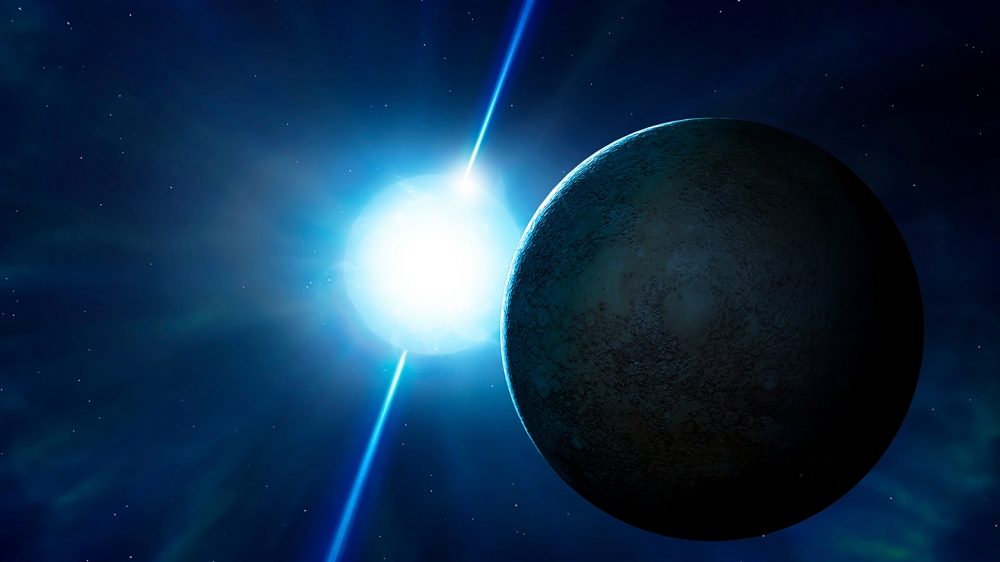Crumbling planets might trigger repeating fast radio bursts

Interactions between a planet and a magnetic neutron star (illustrated) might be the source of repeating, millisecond-long bursts of cosmic radio waves. MARK GARLICK/SCIENCE PHOTO LIBRARY/GETTY
It’s one more hypothesis among many for the source of these flares
By Liz Kruesi
APRIL 18, 2022
Fragmenting planets sweeping extremely close to their stars might be the cause of mysterious cosmic blasts of radio waves.
Milliseconds-long fast radio bursts, or FRBs, erupt from distant cosmic locales. Some of these bursts blast only once and others repeat. A new computer calculation suggests the repetitive kind could be due to a planet interacting with its magnetic host star, researchers report in the March 20 Astrophysical Journal.
FRBs are relative newcomers to astronomical research. Ever since the first was discovered in 2007, researchers have added hundreds to the tally. Scientists have theorized dozens of ways the two different types of FRBs can occur, and nearly all theories include compact, magnetic stellar remnants known as neutron stars. Some ideas include powerful radio flares from magnetars, the most magnetic neutron stars imaginable (SN: 6/4/20). Others suggest a fast-spinning neutron star, or even asteroids interacting with magnetars (SN: 2/23/22).
See full text